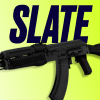
The Russian authorities intend to start regulating the market of virtual items. That is, of skins. Since it’s exactly for weapon finishes that Valve’s two premier games, Counter-Strike: Global Offensive and Dota 2, are both widely known, this is serious business. The CS.MONEY Blog set out to find out just how often Valve has previously clashed with states and how the company managed to get out of these conflicts.
Valve & China’s censorship

Let’s start with the most famous case: the company’s clash with the Chinese censorship machine. We’ve already covered some of the changes that the game’s version for the Celestial Empire underwent. To comply with the local laws, tweaks were done to some skins, stickers, and even map elements.
Another fun fact: in China, Valve transferred the publishing rights to a local enterprise called Perfect World. As a result, the development of the game in the country lies in the hands of specially trained people, not the developers. Prior to that, Valve had pulled off the same trick with Dota 2. In China, Valve’s MOBA functions on Perfect World servers.
Note that it wasn’t just for the Chinese censorship that Valve has had to make adjustments to the game. Earlier, there existed a special version of the game for Germany, where enemies put their hands up and surrender instead of dying with a groan. In any event, it was when dealing with the Chinese market that Valve modified the game the most.
X-Ray for French users

Counter-Strike: Global Offensive features plentiful “lonesome” skins. For instance, The Blacksite Collection includes just one single item: the MP5-SD Lab Rats. You can get this submachine gun by playing Danger Zone — and you can’t really do that much with this weapon. It’s not suitable for crafting, nor for a sensible investment.
Another such outlier skin is the P250 X-Ray. Even though it has “siblings” — the M4A4 and AK-47 that share the same name — it still stands out. Fact is, if you want to open cases in France, you’ll require this item in your inventory. The local law prohibits loot boxes. Due to these restrictions, you can’t buy cases on the Steam Marketplace, for example.
To open a yellow box in France, you must first scan it with a special device that you can only unlock by purchasing a P250 X-Ray. The price of this weapon finish roughly equals that of a case key. Here’s the fun part, though! Using this scanner, you can find out what’s in the case before you even open it. Sounds cool, right?
Nevertheless, there’s a downside. Once you find out what’s in the next box, the scanned finish stays in the scanner and you can no longer use the latter. To check the contents of the next case, you’ll have to pick up the item that’s already in the scanner. With these crutch mechanics, Valve bypassed the country’s legislation, thus enabling France-based Steam users to open cases.
Belgian ban

Besides France, residents of the Netherlands and Belgium faced loot box bans, too. In 2018, the Dutch government stated that Gabe’s yellow boxes violate the Betting and Gambling Act, with the main problem being that skins from loot boxes can be transferred to other users.
Valve quickly solved the issue by banning the Steam Marketplace in the Netherlands and Belgium. The solution was temporary, though: a few weeks later, the company revoked it. On July 11, 2018, an update was released that again granted players from the two countries access to the trading platform.
To pull this off, Valve had to remove the second part of the equation. Since then — and until today — residents of these two countries can’t open cases. Instead of the case opening button, the game interface shows an inscription that states it’s impossible to open a case in this particular country.
Make no mistake by thinking, “So what, VPN software is still there, isn’t it?” There’s a big problem with that. Trying to trick Steam like that directly violates the user agreement. And this, in turn, may lead to your account getting blocked. So it’s better not to risk your account for the sake of a case, and buy a weapon finish directly. By the way, the best place to do that is CS.MONEY.
Honorable mention: Britain

Молодец! Ты дочитал до конца, теперь осталось сделать только одну штуку — подпишись на нашу рассылку, оставив свой e-mail в поле рядом и ты больше никогда не пропустишь лучшие материалы от блога CS.MONEY.
When talking about past conflicts between Valve and various states, we can’t help but elaborate on the upcoming clashes as well. Apart from Belgium and China, many other countries, too, seek to control the market of virtual objects in one way or another. For example, Britain is already developing a law that would equate opening cases with gambling.
Most likely, it’s the UK that will be one of the next European countries to start regulating loot boxes. How long this process will take is hard to say. The bill has been a work in progress for years now. Obviously, such initiatives on the part of states aren’t driven by a snap of someone’s fingers and take a long time. So you don’t have to worry about Gabe’s boxes getting banned tonight.
However, even if you can open CS:GO cases in your country, you’d better not. We tried to find a CS:GO case that would bring the most profit in 2022, and… it didn’t work out! It’s not profitable at all to open CS:GO cases — you can see that for yourself.
Well done! You’ve read the post in its entirety, and now, there’s only one thing left to do: subscribe to our newsletter by leaving your e-mail in the box right there. By doing so, you’ll make sure you never miss the best content from the CS.MONEY Blog.













